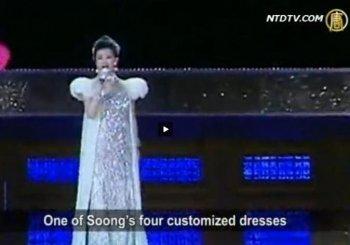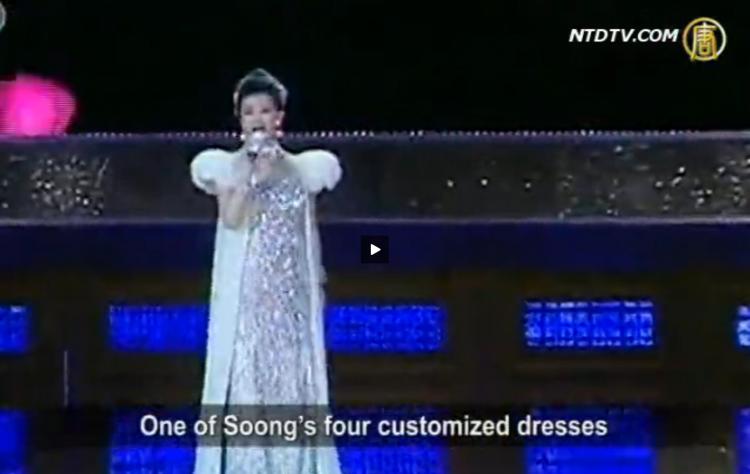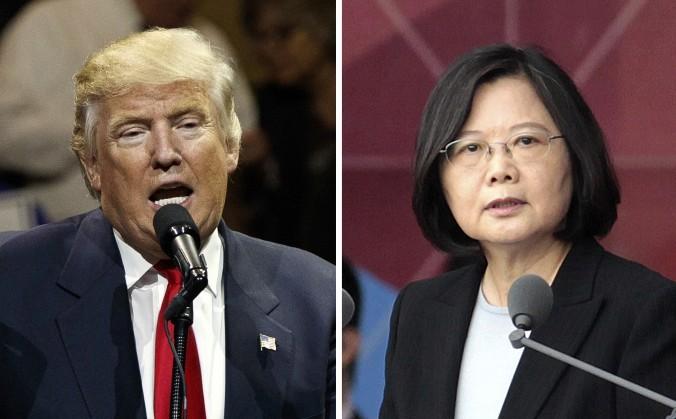Opinion
Army Officer-Chanteuse Seeks to Seduce Taiwan
Song Zuying is an attractive major general of China’s People’s Liberation Army (PLA) and a popular soprano soloist. Her performance in Taipei was an act in a larger drama, as the Chinese regime seeks to consummate its strategy of absorbing Taiwan.

An NTD Television report showing Song's Zuying's performance in Taiwan. NTD Television
|Updated:





